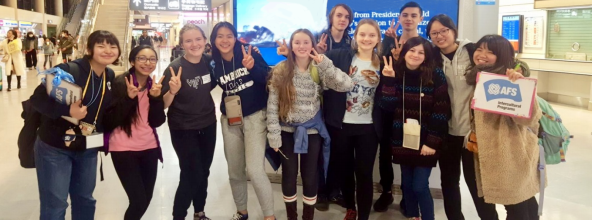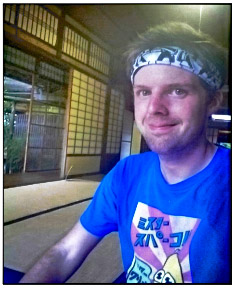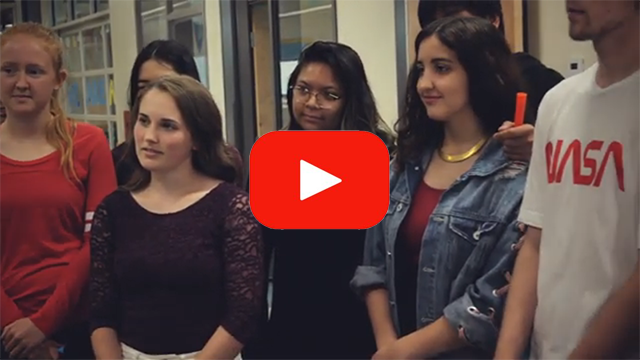Global and Intercultural Skills Program (GISP) Pilot

The Global and Intercultural Skills Program (GISP) Pilot promotes opportunities for and recognizes the development of intercultural skills and global competence by British Columbia students. GISP supports the new British Columbia Curriculum by promoting communication, critical thinking and personal and social competencies.
On this page:
British Columbia students participating in GISP receive benefits:
- They develop a higher degree of self-awareness for their place in the local community and in the global community
- They receive credit for participating in interculturally-focused activities
- They gain valuable experience with their own culture and other cultures
Completion of GISP leads to greater intercultural knowledge and understanding and may provide opportunities for students in the form of recognition or volunteer/work positions at some British Columbia post-secondary institutions.
Program descriptions
How school districts or independent schools participate in GISP
- Must have School Board or School Authority approval for GISP foundational course as Board/Authority Authorized (BAA)
- Must connect with Ministry of Education and Child Care, International Education branch to indicate participation
- Must track student participation in GISP via Global and Intercultural Skills Program Pilot Certificate Tracking Sheet (DOCX)
How students participate in GISP
- Must be in Grades 9-12
- Must indicate Participation in GISP within their local Independent School or School District
Students participating in GISP complete requirements in three strands.
Strand one
Global and Intercultural Studies Foundational Courses. Students must take the following courses:
- Global and Intercultural Studies
- Global and Intercultural Experience
Strand two
Additional Language Study
- Students enrol in additional language study in Grade 10 or higher
Strand three
Elective Courses
- Students complete additional courses with an intercultural focus
- For specific information on courses which may be included in this strand, contact your school or district GISP representative
Program resources
- OECD PISA Global Competence Framework (PDF)
Provides rationale behind importance of global competence in education and how it will be assessed in PISA - UNESCO Intercultural Competences: Conceptual and Operational Framework (PDF)
Resource from UNESCO for thinking through and better understanding intercultural competences and to permit intercultural dialogues - UNESCO Museums for Intercultural Dialogue
Invaluable historical objects associated with various world cultures are presented for a deeper understanding of the connection between historical actors/artefacts and the present - Global and Intercultural Skills Program Pilot Certificate Tracking Sheet (DOCX)
- Global and Intercultural Skills Program (GISP) presentation (PPTX, 19 MB)
- Global and Intercultural Skills Program Brochures
GISP participants
- School District 06 (Rocky Mountain)
- School District 08 (Kootenay Lake)
- School District 23 (Central Okanagan)
- School District 34 (Abbotsford)
- School District 38 (Richmond)
- School District 41 (Burnaby)
- School District 43 (Coquitlam)
- School District 48 (Sea to Sky)
- School District 60 (Peace River North)
- School District 61 (Greater Victoria)
- School District 62 (Sooke)
- School District 69 (Qualicum)
- School District 71 (Comox Valley)
- The High School (THS) at VIU
- St. Michael’s University School
- Mulgrave School
Testimonials
Hear about some of the experiences that B.C. students and teachers have had in GISP.
Student group exchange—Japan

Nine students from the Greater Victoria School District participated in a Tokyo study abroad program. The study abroad opportunity provided students with an authentic intercultural experience that allowed students to engage with Japanese culture in a deep and meaningful way. Students travelled to Japan for twelve days and attended classes at Tokyo high schools and participated with Japanese peers in a number of activities and learning tasks. Canadian students lived with a Japanese student’s family and were able to form relationships and memories that will last a lifetime. As a result of this opportunity, some of the students have begun the process of exploring potential postsecondary opportunities in Japan.
“When I first arrived I was really nervous but my Japanese family made me feel so welcome and I felt like I had so much support. Students at school made an effort to talk with me and genuinely wanted to get to know about me and my life in Canada. Travelling made me realize how important it is to be open to new experiences and perspectives and that no matter how different things can be that people are still people and they want to help and be good to one another.”
-Erin, Gr. 10
“I’m really into modern Japanese art and I was so amazed at how good some of the students were at drawing. I really connected with a couple of the other students with our similar interests which I was really happy about. I did get a little homesick at times but the Japanese family I lived with was very supportive and always made me laugh. I definitely want to go back again one day.”
-Asia, Gr. 10
Teacher experience—Andrew
 "I taught Global and Intercultural Studies during the spring semester at Alpha Secondary (School District 41) in 2017.
"I taught Global and Intercultural Studies during the spring semester at Alpha Secondary (School District 41) in 2017.
Theoretically, I am in full support of what the class teaches: As the world becomes increasingly globalized, it’s now more important than ever to develop a skillset in order to achieve fair, meaningful interactions. However, in order for the course to truly reach its potential, some degree of travel opportunity or intercultural experience (e.g. mentoring international students, volunteering in the community, etc.) needs to be in place to ensure that students interact with other cultures. The theory is useful, but ultimately these are skills, and opportunities for hands-on experiences are absolutely necessary.
Once we began digging deeper into the ideas presented by the material many of us found that it was far more nuanced, challenging, and rewarding than we thought. At its best I believe education makes us question what we believe to be inherently true, and when this course is at its best it absolutely does that. It is a valuable process to realize your own limitations, and then come out the other side with a plan to combat them.
I taught a relatively small class of 18 students, but the content was well-received overall, and students consistently demonstrated an increased skillset as the semester went on. Although it’s becoming increasingly clear that students will require intercultural skills to succeed, I think the content of the course is a little ahead of its time.”
Contact
If you have any questions or comments about GISP, please feel free to contact us.

